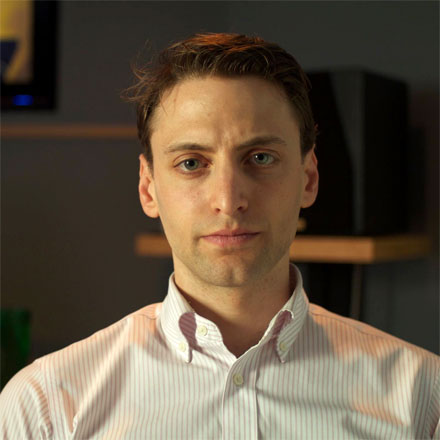 Tweet
Tweet
Featured on Nov 19, 2013
Ben Feibleman
""We're surrounded. That simplifies our problem." - Chesty Puller"
Bio:
My path to wind up in tech is definitely not standard. After the Marines, I studied Political Science at Columbia to rejoin the federal service and be a diplomat. After getting to there, I realized that what I really needed was to see what I could do on my own. That year I met a venture capitalist at a Marine Corps Ball in New York, he invited me to come learn the tricks of the trade. In just a few months I got exposure to the New York and Israeli tech startup scene, picked a startup that developed a really impressive voice cloning technology, and I've been riding that roller-coaster ever since.
- Title: VP Strategy & Business Development
- Age: 30
- Location: Flatiron District
- Contact: www.vivotext.com
What issues pertaining to veterans haven't been addressed enough? What are some solutions to these issues?
Vets need a smoother transition back to normal life. And by normal life, I don't mean trading an M-4 for an M-9 and a badge. The three-day course I received on my way out was supposed to teach me to use my benefits and get a job, but it was little more than a parade of recruiters from police forces and trucking companies. Too many veterans get out and think they know what they want to do with their lives and how to get there. News flash: they probably haven't got a clue. It's not their fault. You don't know what you don't know. Take networking: Getting your career going has a lot more to do with whether they like you than the name of your school or what rank you were. That's not something that's taught to enlisted, particularly because of an institutional aversion to fraternization. Transitioning out, that's a handicap. The Transition Assistance Program or "TAPS" is currently under the Department of Labor, when it should really be under the VA. If TAPS was run by the VA and extended as part of your post-service benefits, it wouldn't be a three-day box-checking class, and vets would have a much better understanding of the VA system, which, frankly, they badly need.
Synthesized speech has become much more ubiquitous since the days of, "Hello. I'm Macintosh. It sure is great to get out of that bag." What new improvements to computerized voices are you most excited about?
The newest and coolest development is the ability to truly clone a person's voice. There are lots of novelty apps where they do something like take all the audio they can find of Morgan Freeman, cut it up, and rearrange it into whatever funny saying you want. What we're building is a generational leap from that. The computer, when faced with page of text, rather than pasting together some audio version of a ransom note, it analyzes the text and asks itself, "How would Morgan Freeman say this?" The result is virtually indistinguishable from a native recording, matching the cadence and mannerisms unique to the actor. We've already done Neal Conan from NPR, and before long you'll be able to get any news article you want read to you in that same audible chocolate you hear on public radio.
What technology used in the military today do you think would be interesting as a consumer product?
I was originally infantry, so I'm going to saw that it's actually the military that needs to incorporate consumer products. Augmented reality is already being prototyped at mil-spec conventions (like Google Glass, but for combat). Anything that gives soldiers and Marines more information the better. Translation tools, spotting weapons under clothes (better yet, confirming someone is unarmed when they're being evaluated as a target), things like this cut down on civilian casualties, and the way our military actions look these days, that might be the best thing we can do for ourselves.
You recently issued your 10th tweet, the same number as Tim Cook. What can we expect for your 11th tweet?
Ante up, @Tim_Cooke.
— Benjamin Feibleman (@Feiblemonster) November 16, 2013